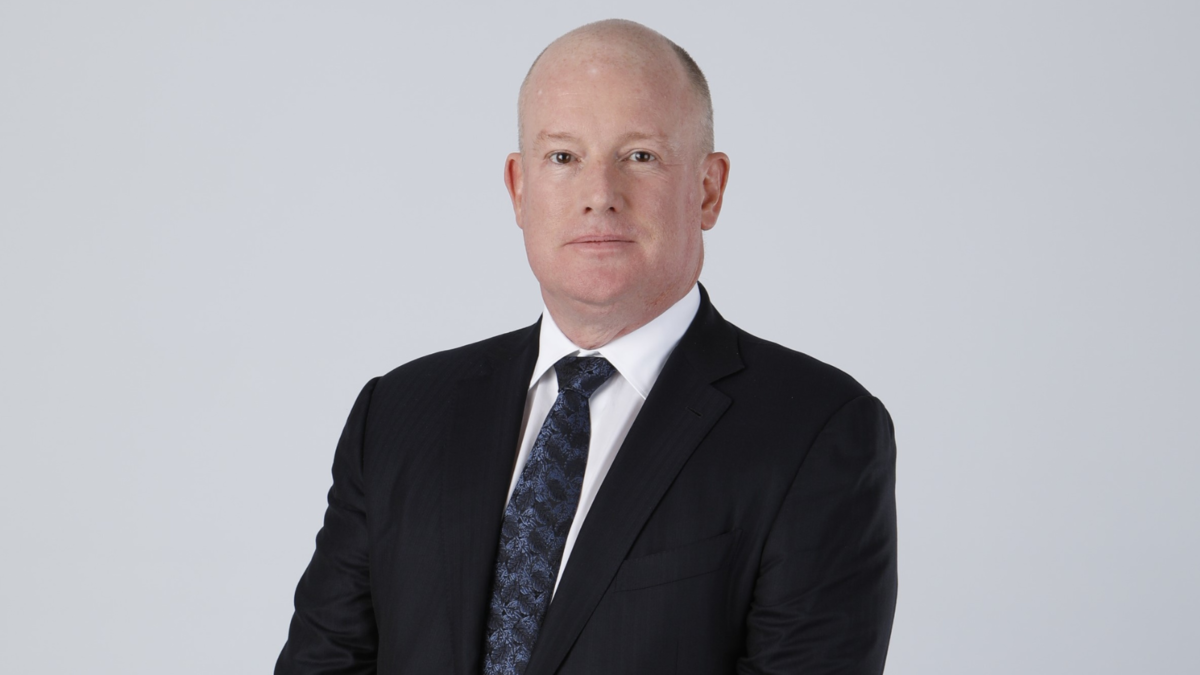‘Everybody has a plan until they get punched in the face’: The laws of financial gravity apply to private equity too
Super funds and other large institutional investors have increased their allocations to private equity over the last decade, drawn by its apparently superior returns and relative lack of volatility. But far from being the perfect solution to choppiness in the public markets, private equity will suffer just as much – if not more – than its listed counterparts, according to David Elms, head of diversified alternatives at Janus Henderson (photo at top).
“One of the things that we’re going to see next year is certain alternatives being revealed as not really alternatives,” Elms told media on Tuesday (December 6). “If you take something like private equity, private equity is typically public equity; it often was public equity before the private equity firm acquired it in a levered buyout.”
“It has more debt, and it should behave like levered public equity. It should go down more than public equity and it should go up more than public equity and the story over the last two decades was it mostly going up more.”
But we’re in “going down more mode” now, Elms said, and higher interest rates and the corresponding higher cost of refinancing debt means that private equity is likely to struggle. The only reason it isn’t struggling yet is the fact that there’s “considerable discretion over mark-to-market by the sponsoring company”.
“They can be slower in the cycle of marking-to-market and they can cushion moves, but ultimately if markets fall than there is a law of financial gravity that applies here as well,” Elms said. “We’re seeing this to some extent with some high-profile vehicles that offer daily liquidity but have illiquid assets underneath them.”
“I’m not going to talk about names – they’re run by other large asset managers – and it’s a relatively well-known story, but I think this is something that will persist next year. If you’re depending on your alternatives portfolio to give you diversification, look through what it’s called and past the historical track record, and ask “what’s actually in this wrapper?”… Make sure your alternatives genuinely are alternative.”
And the overarching era of valuation being more religion than science is now over, Elms warned. It’s too early to know whether the collapse of FTX resulted from fraud, incompetence, bad luck or some combination of all three – but investors “are going to see FTX as a symbol of people’s views on this sort of thing changing”.
“The lens to think about this sort of thing is through an idea that John Kenneth Galbraith keyed in the 1950s when he wrote about the big crash of 1929; the idea of the “bezzle”, short for embezzle,” Elms said. “It’s the idea that good times are characterised by increasing fraud – not just fraud in a narrow sense, but people believing impossible things.”
“People were quite happy to believe that a 29 year old out of his dorm can run a $30 billion company that he built in two years in the case of FTX. Maybe it works and maybe it doesn’t – there have been some successes – but it’s not as easy as people have gotten used to believing it is over the last few years.”
What the collapse of FTX and the cracks showing in other challenged business do is change what investors are prepared to believe, Elms said, and how much credibility they assign to a management team with pie-in-the-sky promises like increasing electric car production “tenfold without a hitch” or commercialising space travel.
“This will draw a line between turbocharged high growth stocks that are very hard to believe in versus genuine companies with a defensive moat,” Elms said. “It will focus the market back on value and away from growth. It will make some of the investments in private equity come under even more pressure.”
“What investors have had this year is a punch in the face. This is the old Mike Tyson quote – though I don’t think Mike Tyson ever said it, it just keeps getting attributed to him – that everybody has a plan until they get punched in the face… It’s still a very dangerous environment to invest, and I think you’re going to see downgrading of hyper-growth stocks. It’s happened, and it always goes longer than you think it will.”











